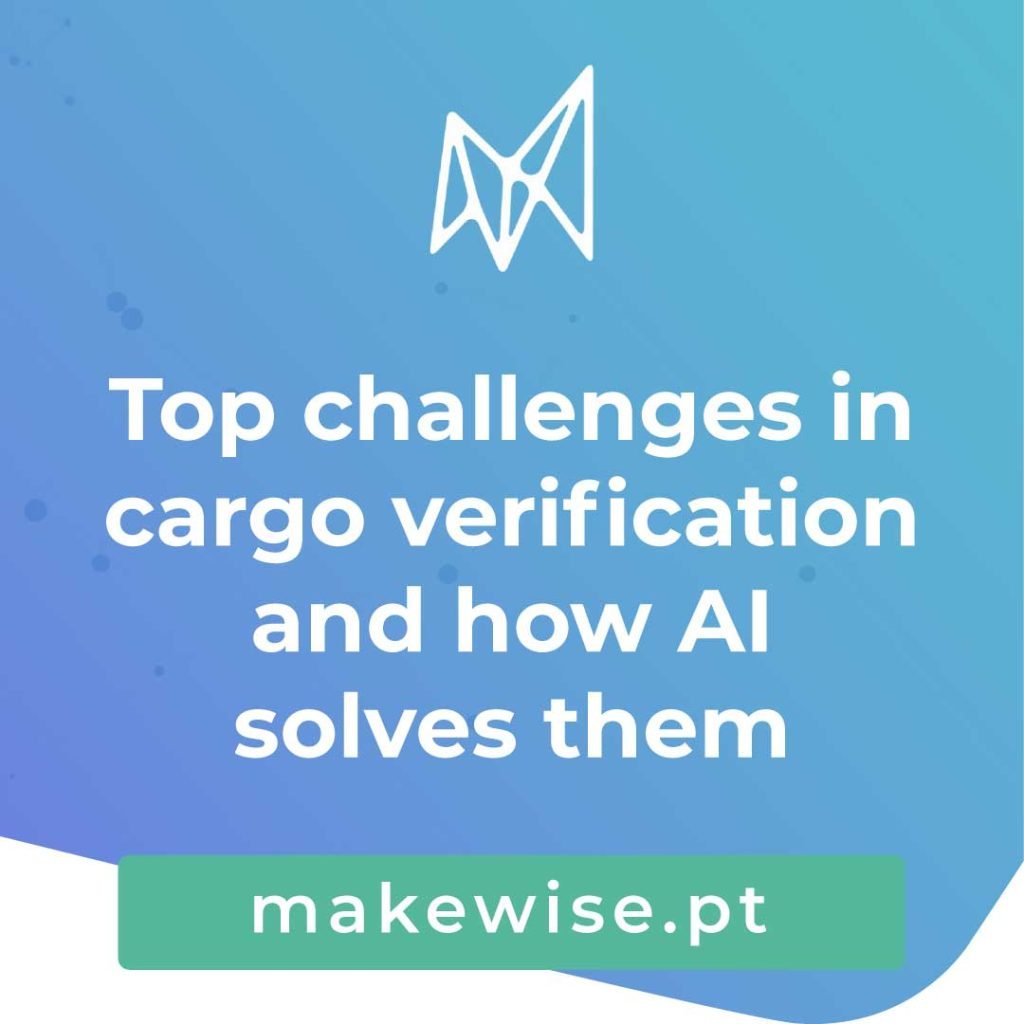In the fast-paced world of logistics, ensuring accurate verification of cargo is paramount. With the increasing complexity of supply chains and rising demands for real-time information, traditional cargo verification methods often fall short. Enter Artificial Intelligence (AI)—a transformative technology reshaping the logistics landscape, enabling more efficient, accurate, and secure verification processes. In this article, we’ll dive into the top challenges in cargo verification and how AI solves them.
What are the challenges?
Cargo verification is a critical component of logistics management, yet it continues to face significant hurdles. From manual inaccuracies and lack of real-time visibility to issues around regulatory compliance and resource scarcity, these challenges can severely disrupt the efficiency and profitability of logistics operations. Understanding these challenges in depth is crucial to identifying effective solutions:
- Scarcity of resources: limited human resources can lead to delays and errors in cargo handling.
- Inefficient supply chain evaluation: without effective evaluation tools, identifying bottlenecks and inefficiencies becomes challenging.
- Lack of real-time visibility: traditional systems often fail to provide real-time tracking, leading to mismanagement and loss.
- Manual errors: human errors in documentation and cargo handling can result in significant financial losses.
- Fraudulent activities: the absence of robust verification systems can lead to cargo theft and fraud.
- Regulatory compliance: meeting diverse regulatory standards across regions is complex and challenging.
- Data management issues: handling vast amounts of data without proper tools can overwhelm logistics operations.
How AI solves them






To address the complexities and inefficiencies inherent in traditional cargo verification processes, Artificial Intelligence emerges as a revolutionary solution. AI-driven systems offer automation, predictive analytics, and enhanced data management, directly tackling the critical issues faced by logistics operators. By harnessing advanced algorithms and real-time insights, AI significantly improves accuracy, transparency, and overall operational efficiency in cargo verification:
- Automation of processes: AI automates routine tasks, reducing dependence on human resources and minimizing errors.
- Predictive analytics: AI analyzes data to forecast potential issues, enabling proactive measures to prevent disruptions.
- Real-Time tracking: AI-powered systems deliver real-time visibility into cargo movements, enhancing transparency and efficiency.
- Enhanced accuracy: Machine learning algorithms improve the accuracy of cargo verification, substantially reducing manual errors.
- Fraud detection: AI detects unusual patterns and anomalies, helping to prevent fraudulent activities.
CHECKPOINT.VISION: The AI-Powered solution

One notable AI-driven solution in cargo verification is CHECKPOINT.VISION. Developed by MakeWise, this computer-operated load control system uses advanced object recognition to automate and enhance cargo transport verification. By streamlining the verification process, CHECKPOINT.VISION boosts accuracy, minimizes manual errors, and ensures compliance with regulatory standards. Its real-time tracking capability allows logistics stakeholders to effectively monitor cargo movements, significantly increasing operational transparency.
The integration of Artificial Intelligence into cargo verification directly addresses longstanding challenges within the logistics industry. Solutions like CHECKPOINT.VISION highlight the powerful potential of AI to revolutionize cargo handling by enhancing accuracy, operational efficiency, and compliance. As the logistics landscape evolves, embracing AI-driven technologies becomes essential for companies aiming to stay competitive and meet the growing demands of global trade.

